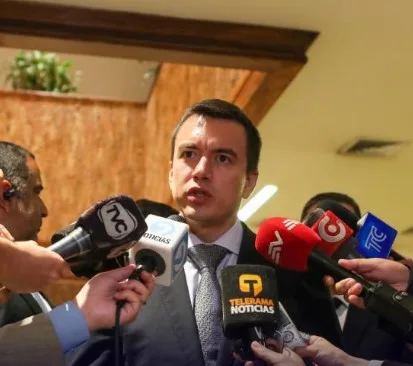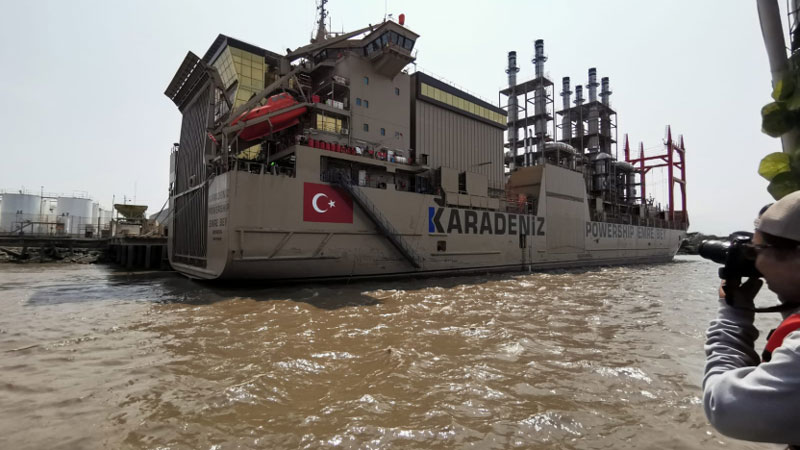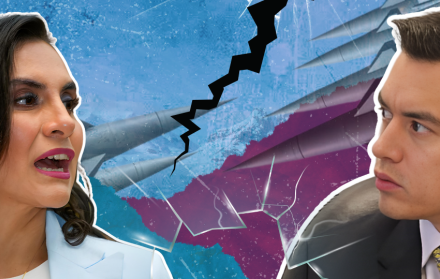Ecuador’s economy is ‘drowning’ in subsidies, the experts say; Noboa enters office with high public support; Illegal drug seizures top $4 billion in 2023
Government subsidies for fuel, electricity, Social Security deficits and other services amount to a staggering 24% of  Ecuador’s national budget, or 6% of the Gross Domestic Product (GDP), according to the most recent Central Bank statistics. Economists say those percentages will likely increase by the end of the year.
Ecuador’s national budget, or 6% of the Gross Domestic Product (GDP), according to the most recent Central Bank statistics. Economists say those percentages will likely increase by the end of the year.
Almost everyone, from elected officials to economists to leaders of social and indigenous groups agree subsides should be reduced but there is no consensus on how to do it. “They all have their own solution but there is little middle ground for general agreement,” says Romina Carrera, an economist and former Finance Ministry consultant. “The economy is drowning in subsidies, which could amount to $8 billion this year, and these are killing infrastructure projects and keeping our education and health services impoverished.”

New president Daniel Noboa will enter office with high public approval ratings.
Although incoming president Daniel Noboa says subsidy reduction is a priority, he has offered no solid proposals, Carrera says. “Yes, crime and unemployment are also priorities but unless we reign in the subsidies there won’t be the funding to address the other problems.”
An example of the resistance to eliminating subsidies is last week’s decision by President Guillermo Lasso to end the electricity subsidy for industry granted by the Lenin Moreno administration.
“The captains of industry are howling that they cannot remain competitive without the handout and they will be forced to fire workers,” says Carrera. “No one suggests they must live with the real economy and the prices set by international markets. Everyone wants something for free or at least at a reduced cost.”
University of Guayaquil finance professor Carlos Ortiz points to the lack of action to control fuel subsidies following the 2019 and 2021 indigenous strikes. “In the negotiations following the protests, the Moreno and Lasso governments promised to target the subsidies to the poor and public services that need them, but almost nothing was done,” Ortiz says. “I would argue that the fuel subsidies should be eliminated entirely, with very few exceptions, but there is not the will to do it.”
The fuel subsidy for LP gas, gasoline and diesel fuel was budgeted at $2.9 billion for 2023 but could reach $4 billion by the end of 2023, Ortiz says. “This is money we need to improve our schools, our health system, our prisons, our highways and our public services, but it is not available.”
The other major government subsidy, says Ortiz, is to the Social Security pension and health care services, amounting to $3 billion. “Instead of doing the hard, probably unpopular work of making IESS cover more of its costs, the government and National Assembly continue to shell out cash to cover the shortfall,” he says, asking, “When will we find the courage to make the fundamental changes?”
According to the Central Bank, subsidies amounting to more than $1 billion also support electricity production and service, agricultural and industrial interests, and to a wide range of social programs.
Noboa enters office with high public support
When Daniel Noboa is sworn in as president Thursday, he will enjoy public support of more than 60% of the population. Numbers from two polls released Monday give him the approval of 60.2% and 64.5% of Ecuadorians.
“It is customary for presidents to enter office with high ratings,” says former pollster Miguel Rossignoli. “Both [Lenin] Moreno and [Guillermo] Lasso came it at almost 70%. Even those who did not vote for the incoming president give him the benefit of the doubt and hope he can accomplish what he has promised.”
On the other hand, outgoing presidents leave office with support numbers that are “under water,” Rossignoli says. “Lasso will leave at less than 20% and, before him, Moreno was at 22% and Correa had 32%,” he said. “Few presidents meet their promises, and they are all blamed, as was Correa, when the economy goes bad.”
More than $4 billion illegal drugs seized in 2023
Last week’s confiscation of a shipping container packed with 1.2 tons of cocaine is only the latest major seizure of illegal drugs heading out of Ecuador’s ports. The contents of the container, headed for Italy from a dock in Guayaquil, had a street value in Europe of $35 million.
The total value of all Ecuadorian drug seizures through mid-November 2023, totaled $4.3 billion, according to National Police. They say almost all illegal drug shipments go out of the ports of Guayaquil, Manta, Machala and Esmeraldas. By year’s end, anti-narcotic agents expect the total to exceed $5.5 billion, beating the 2023 record value by more than a billion dollars.
“It is an ongoing battle, containing the export of drugs from our shores,” says William Villarroel Trujillo, director of the country’s anti-drug enforcement operation. “The flow of drugs, more than 90% of which is cocaine, into the country and heading for the ports, is above last year’s pace although it has slowed from previous years. We are making progress in controlling it and look forward to the assistance promised by European countries and the U.S.”

















